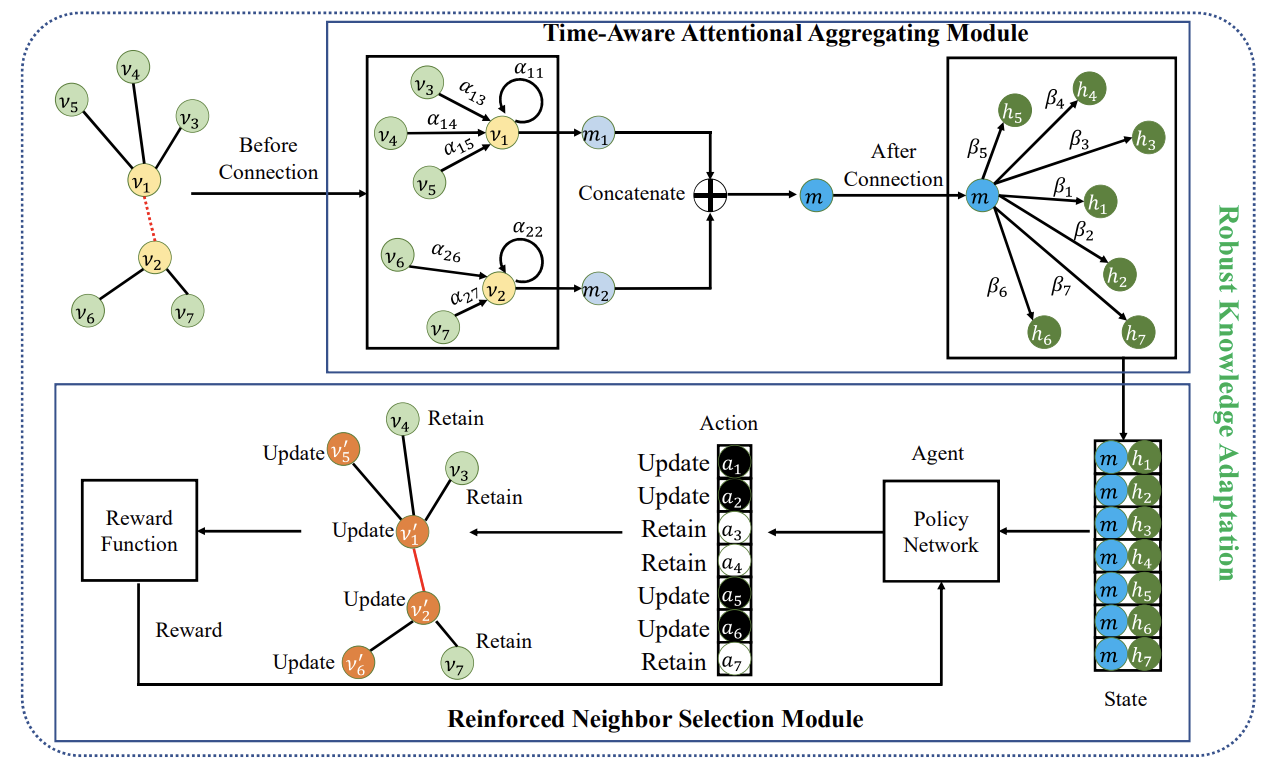Robust Knowledge Adaptation for Dynamic Graph Neural Networks
Graph structured data often possess dynamic characters in nature. Recent years have witnessed the increasing attentions paid to dynamic graph neural networks for modelling graph data. However, almost all existing approaches operate under the assumption that, upon the establishment of a new link, the embeddings of the neighboring nodes should undergo updates to learn temporal dynamics. Nevertheless, these approaches face the following limitation: If the node introduced by a new connection contains noisy information, propagating its knowledge to other nodes becomes unreliable and may even lead to the collapse of the model. In this paper, we propose Ada-DyGNN: a robust knowledge Adaptation framework via reinforcement learning for Dynamic Graph Neural Networks. In contrast to previous approaches, which update the embeddings of the neighbor nodes immediately after adding a new link, Ada-DyGNN adaptively determines which nodes should be updated. Considering that the decision to update the embedding of one neighbor node can significantly impact other neighbor nodes, we conceptualize the node update selection as a sequence decision problem and employ reinforcement learning to address it effectively. By this means, we can adaptively propagate knowledge to other nodes for learning robust node embedding representations. To the best of our knowledge, our approach constitutes the first attempt to explore robust knowledge adaptation via reinforcement learning specifically tailored for dynamic graph neural networks. Extensive experiments on three benchmark datasets demonstrate that Ada-DyGNN achieves the state-of-the-art performance. In addition, we conduct experiments by introducing different degrees of noise into the dataset, quantitatively and qualitatively illustrating the robustness of Ada-DyGNN.
PDF Abstract


 Reddit
Reddit